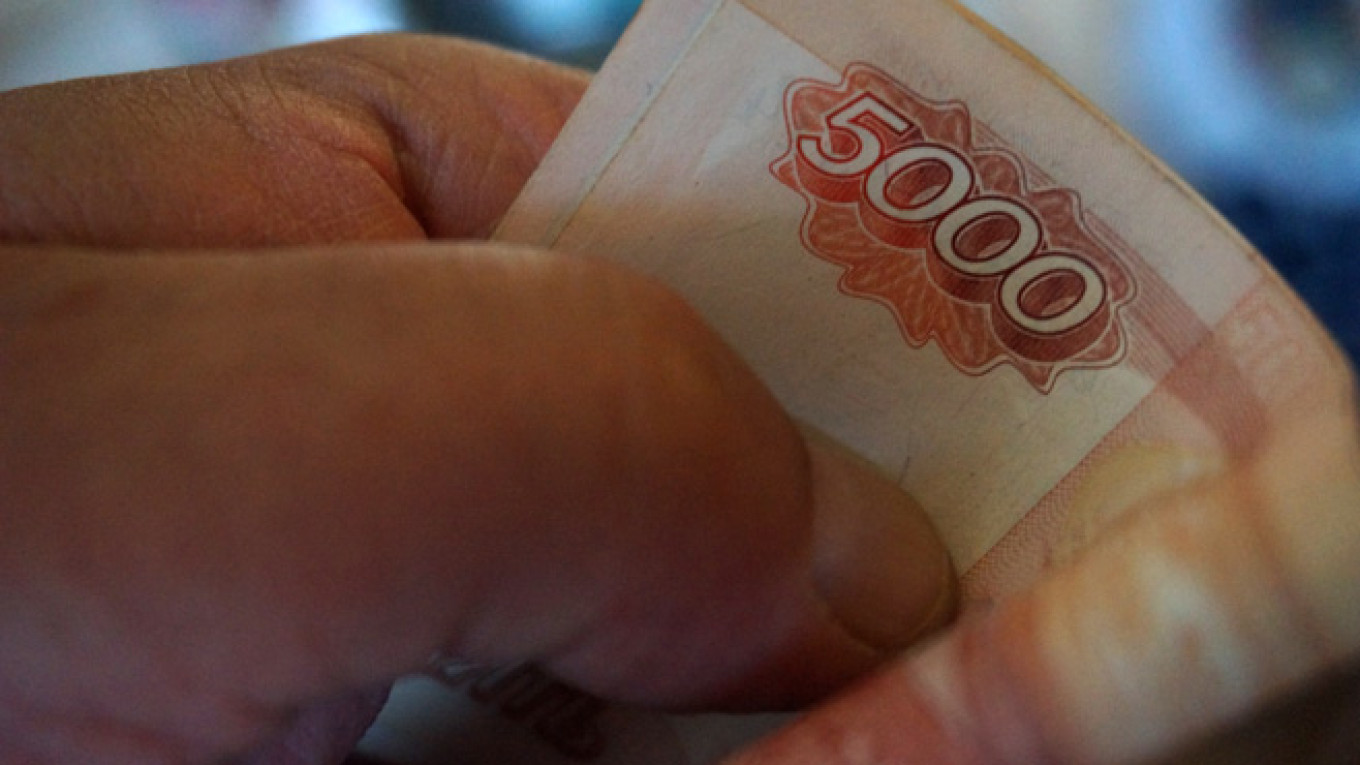WARSAW — Lending to Russia by the European Bank for Reconstruction and Development could drop as the economy slows, the bank's head said on Thursday, while it may step up loans to countries at risk of economic damage from the Russia-Ukraine crisis.
EBRD funding in Russia slumped last year to 1.8 billion euros ($2.5 billion) from 2.6 billion in 2012 due to what the development bank termed "difficult investment conditions."
Its president, Suma Chakrabarti, said it could now drop again this year.
"It could impact on our business volumes in a country the size of Russia if the economy keeps slowing because investment then slows," Chakrabarti told reporters at the bank's annual meeting in Warsaw.
On Wednesday the EBRD slashed its growth forecast for Russia to zero this year and warned it could fall into recession, especially if further U.S. and European Union sanctions are imposed.
But the bank had no plans at the moment to stop its funding to Russia in reaction to Russia's annexation of Crimea and the situation in eastern Ukraine, parts of which have been taken over by pro-Moscow separatist militants.
"There are some shareholders that are seriously concerned at, as they perceive it, Russia's behavior in eastern Ukraine," Chakrabarti said.
"That may play out in the EBRD, it has not yet," he said. "The shareholders bought into my argument that the EBRD has been a force for good in Russia. We will see what the future holds, but not yet."
Chakrabarti himself has pulled out of an international conference Russia is holding in St. Petersburg this month. He said he had an urgent engagement elsewhere, but gave no details.
Meanwhile, he said, the bank would look in the next few months at increasing its investments in Central and Eastern Europe. Governments in the region fear the Ukraine crisis could hurt their economies and Chakrabarti said there was high demand for EBRD loans, which come on attractive terms.
The EBRD was created in 1991 to invest in the former Soviet bloc countries of Eastern Europe. In recent years, its membership has expanded to include Mongolia, Turkey and economies affected directly or indirectly by the Arab Spring such as Morocco, Egypt, Tunisia and Jordan.
A Message from The Moscow Times:
Dear readers,
We are facing unprecedented challenges. Russia's Prosecutor General's Office has designated The Moscow Times as an "undesirable" organization, criminalizing our work and putting our staff at risk of prosecution. This follows our earlier unjust labeling as a "foreign agent."
These actions are direct attempts to silence independent journalism in Russia. The authorities claim our work "discredits the decisions of the Russian leadership." We see things differently: we strive to provide accurate, unbiased reporting on Russia.
We, the journalists of The Moscow Times, refuse to be silenced. But to continue our work, we need your help.
Your support, no matter how small, makes a world of difference. If you can, please support us monthly starting from just $2. It's quick to set up, and every contribution makes a significant impact.
By supporting The Moscow Times, you're defending open, independent journalism in the face of repression. Thank you for standing with us.
Remind me later.


